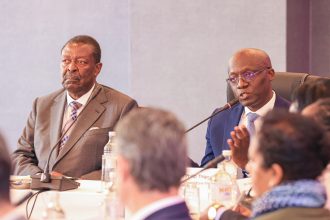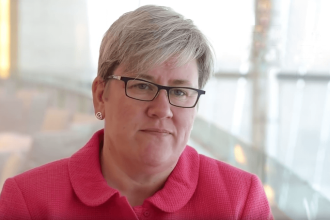Companies based in Africa’s coastal nations like Kenya, South Africa, Mozambique, Egypt, Eritrea, Morocco and Libya have been urged to back the Blue Economy to realize the benefits they stand gain in the future.
The World Bank defines the Blue Economy as the sustainable use of ocean resources for economic growth, improved livelihoods and jobs while preserving the health of the ocean ecosystem.
The Blue Economy offers an array of economic, social and environmental advantages; including a wide range of productive sectors that are crucial for the continent’s sustainable development.
According to the policy handbook on Africa’s Blue Economy by the United Nations, the largest sectors of the current African aquatic and ocean based economy are fisheries, aquaculture, tourism, transport, ports, coastal mining and energy.
“There needs to be more awareness of the Blue Economy and a realization of how important it is to the future of Africa,” Leila Ben Hassen, Founder and CEO of Blue Jay Communication, said.
70 per cent of Africa’s nations are located along the coast and 90 per cent of the continent’s imports and exports are done through sea transportation, presenting the continent with an enormous opportunity to develop the sectors which can be associated with the blue economy.
These sectors will not only raise the GDP of African economies, but will also provide food security and nutrition for over 200 million Africans through aquaculture. The Blue Economy has the potential to be a major source of wealth and prosperity for the continent and help advance the African Union’s Agenda 2063 and the UN Agenda 2030 for Sustainable Development, according to research by Jay Communications.
This year’s Africa Blue Economy Forum (ABEF) will be held in Tunis, Tunisia from 25th to 26th June. The forum aims to raise awareness of the economic, social and environmental benefits of the Blue Economy. This year’s forum aims to take it a stage further and explore how business and government can implement actions that will proactively boost the economic, social and environmental welfare of the continent.
This year’s ABEF will build on the inaugural event in London last year which explored what the Blue Economy was.
According to Ben Hassen, who is the organizer and founder of ABEF 2019, governments are beginning to understand the importance of the Blue Economy and beginning to implement policies. However, the private sector is still needed to grasp this and to look at how they can work in partnership with governments and other organizations to make this succeed.
“Collaboration is necessary to make this work and deliver huge benefits for the continent enabling it meet the United Nations’ Sustainable Development Goals. ABEF 2019 will begin to lay the foundations for this collaboration process,” she added.
This forum provides ocean stakeholders with a unique platform that enables them to present new investment opportunities in both traditional and emerging ocean industries. It also gives them an opportunity to make public-private partnerships and networking easier, as well as share insights on how to achieve Sustainable Development Goal (SDG) 14 that deals with life below water.




